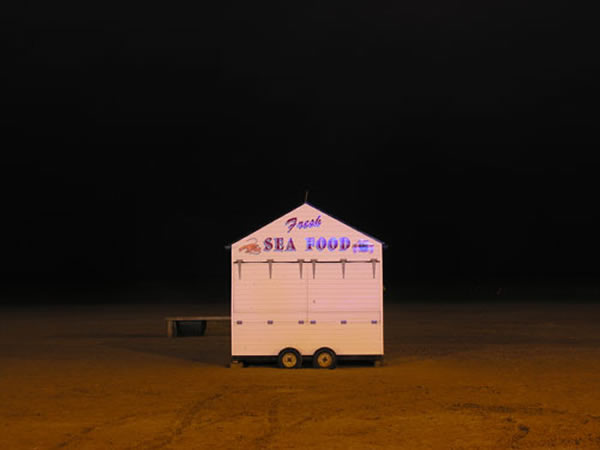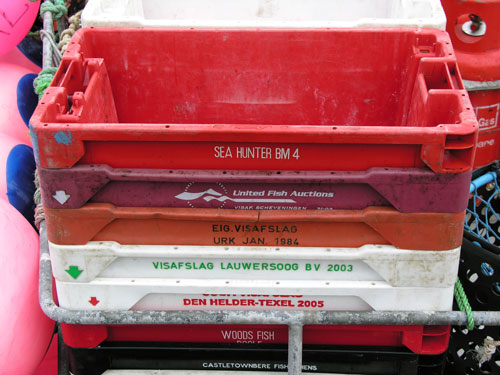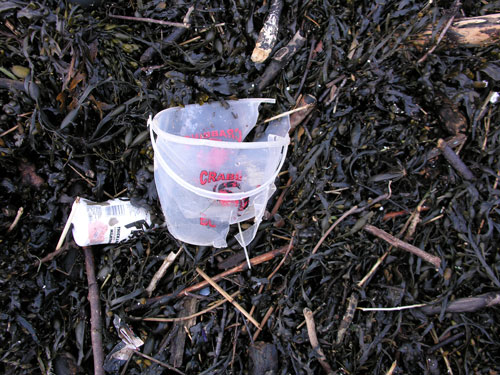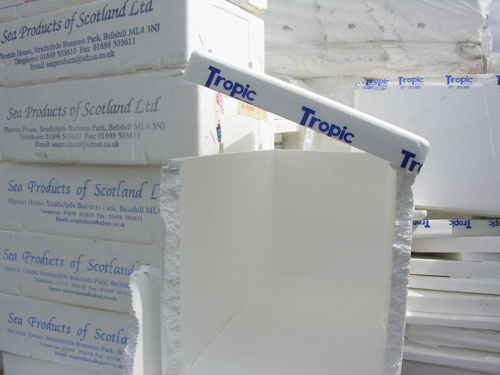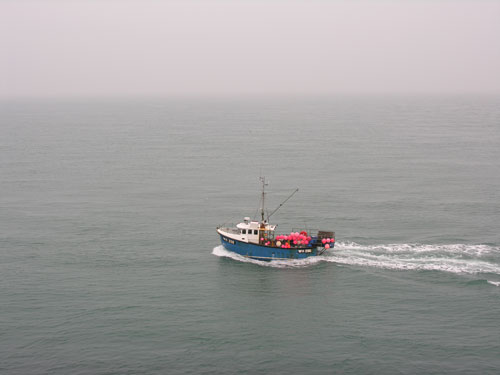Polymers
Video, 8 min loop, and photography, 2009
The project “Polymers” monitors data in relation to the marine environment. The increase of plastic debris in the ocean, as well as the impact of global trade on the ecosystem are being explored through film and photography.
„Polymers“ is based on a conversation with the marine biologist Dr. Richard Thompson at the University of Plymouth. A list of known polymers is juxtaposed with visual samples from the Plymouth estuary.
Plastic debris, which is a result of industry and domestic waste, has widely spread across the world’s seas. Sturdy and durable plastic does not bio-degrade, it only breaks down physically, and so persists in the environment for possibly hundreds of years. Plastic is ingested by seabirds and various marine organisms and its adverse effects on the food chain are a concern.
Dr. Richard Thompson is leading research into what happens when plastic breaks down in seawater and what effect it is having on the marine environment. He and his team analyze microscopic fragments sampled from the ocean and beaches.
An aspect of this research is focusing on what happens when plastic absorbs other contaminants. So-called hydrophobic chemicals such as PCBs and other persistent organic pollutants accumulate on the surface of the sea and can latch on to plastic debris.
“They can become magnified in concentration,” said Richard Thompson, “and maybe in a different chemical environment, perhaps in the guts of organisms, those chemicals might be released.” Whether plastics present a toxic challenge to marine life and subsequently to humans is a major challenge facing marine scientists today.
Video, 8 min loop, and photography, 2009
The project “Polymers” monitors data in relation to the marine environment. The increase of plastic debris in the ocean, as well as the impact of global trade on the ecosystem are being explored through film and photography.
„Polymers“ is based on a conversation with the marine biologist Dr. Richard Thompson at the University of Plymouth. A list of known polymers is juxtaposed with visual samples from the Plymouth estuary.
Plastic debris, which is a result of industry and domestic waste, has widely spread across the world’s seas. Sturdy and durable plastic does not bio-degrade, it only breaks down physically, and so persists in the environment for possibly hundreds of years. Plastic is ingested by seabirds and various marine organisms and its adverse effects on the food chain are a concern.
Dr. Richard Thompson is leading research into what happens when plastic breaks down in seawater and what effect it is having on the marine environment. He and his team analyze microscopic fragments sampled from the ocean and beaches.
An aspect of this research is focusing on what happens when plastic absorbs other contaminants. So-called hydrophobic chemicals such as PCBs and other persistent organic pollutants accumulate on the surface of the sea and can latch on to plastic debris.
“They can become magnified in concentration,” said Richard Thompson, “and maybe in a different chemical environment, perhaps in the guts of organisms, those chemicals might be released.” Whether plastics present a toxic challenge to marine life and subsequently to humans is a major challenge facing marine scientists today.
